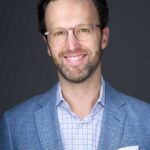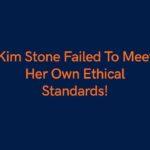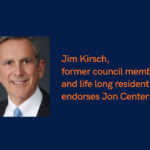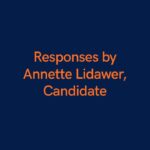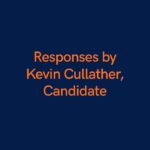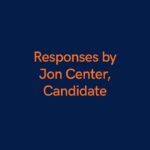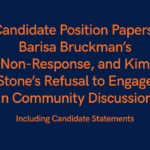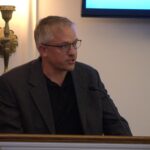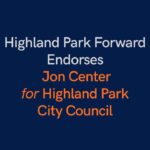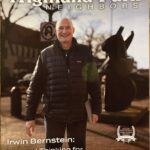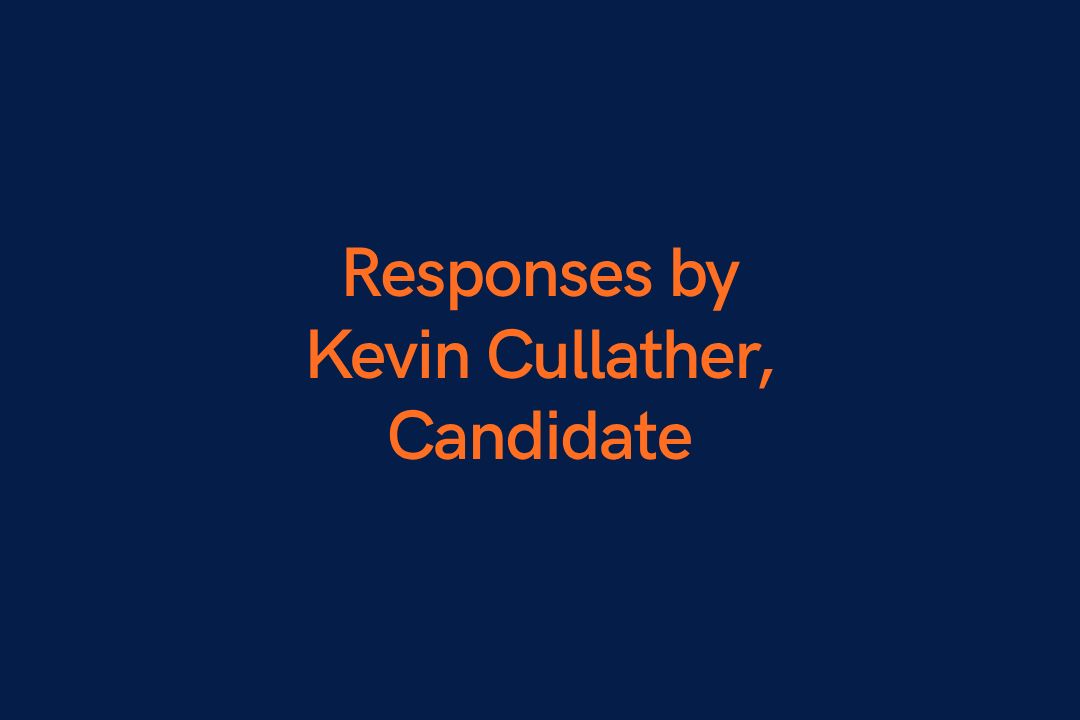Candidate – Kevin Cullathers’ Response to HP Forward Endorsement Questionnaire
Question 1: Highland Park Forward believes the council should be made up of a diverse group of individuals representing the different communities and interests of the city’s residents with each bringing a unique set of expertise/skills to the council. Why are you seeking a position on the Council and what unique attributes, experience and skills would enhance your electability and improve the work of the council?
Kevin Cullather: I am running for Highland Park City Council because democracy requires citizens to step up. Incumbents should not go uncontested, and diverse groups should be represented. My wife and I chose to raise our children in Highland Park because of its walkable and active downtown, welcoming atmosphere, and socioeconomic diversity. I became involved in city government because of my commitment to serve the community and make Highland Park even better.

As the map shows, currently, six of seven members of City Council live east of St. John’s Avenue and south of Highland Park High School. I have lived on Green Bay Road and currently live in the Chantilly development. Geographic diversity on the Council is important. When issues affecting neighborhoods in the northern and western areas of Highland Park come before the Council, these residents often feel unrepresented. This has been evident in the discussions regarding the Solo Cup factory site, the University Avenue proposal, and the 1535 Park Ave West lot. If elected, I am committed to working with other Councilmembers to study ways to ensure these neighborhoods are represented on City Council and each of the city’s commissions, boards, and advisory groups.
Although I was not raised in Highland Park, my wife, children and I have come to call it home. I love how this community has come together in both times of sadness and times of great joy— how neighbors truly care for one another. Having lived in other jurisdictions and worked with municipal governments from across the nation, I would bring to the Council life experiences and ideas from outside of Highland Park.
Throughout my career, graduate education, and volunteer activities, I have encouraged civil discourse in discussing public policy issues and community interactions. In July 2024, I testified to this matter, which can be seen in the video linked here: Highland Park City Council meeting.
Question 2. HP Forward believes a community and its leaders must always be considering changes to address shifts in its residents’ wishes and needs, and to keep up with surrounding communities. What improvements and changes would you work for in city government and in the community at large?
Kevin Cullather: The city and Council should engage residents and business owners in charting HP’s future. To do so, I am proposing that the city use the process of updating its 25-year old Comprehensive Plan to map out its future while also engaging residents and business owners. For background, since the Comprehensive Plan was adopted, many changes have occurred. For example,
• The old movie theater has been replaced with an office building/retail/restaurant space
• The Saks has been replaced with an apartment building
• The Albion complex has been built by the water tower
• More condominium buildings surround the central business district and in the “step- down” zone
• New multiuse buildings have been built in the Ravinia District
• A golf course has been converted into a nature preserve
• The Toys-R-Us and Petco have shuttered
• Lincoln School has been demolished
These are simply a reflection of a changing community. We know there will be more development in the coming years as the Solo Cup site is developed and District 112 finalizes its school renovations and sells off properties it no longer uses. In addition, the neighboring village of Northbrook is planning the redevelopment of Northbrook Court, and Highland Park needs to identify the potential impact this will have on our residents and businesses.
The city needs to use the planning process not only to gather public input but also to educate its residents about what can be built on specific parcels. By proactively engaging its residents, the city can avoid much of the heated discussions and pushback it received regarding widening Green Bay Road sidewalks on University Avenue, development of 1535 Park Avenue West, and a truck depot at the Solo Cup site.
As the former Chair of the Zoning Board of Appeals, one question we always asked was “have you spoken to your neighbors?” The city and other governmental organizations should do the same. As a Councilmember, I will commit to having regular hours when the residents and business owners can meet with me and discuss their concerns or visions for Highland Park.
While serving on the Zoning Board, I witnessed many changes in the residential neighborhoods over past eight years. These changes may not be as noticeable to most residents. As Chair, I asked staff to look at the variances granted and to identify trends citywide as well as within each zoning district. Because the zoning laws were created after many homes were built, entire neighborhoods are deemed “non-conforming.” As part of the revision to the City’s Comprehensive Plan, I believe using these data would make the community more welcoming and inviting to homeowners who are looking to modernize our older housing stock to current standards or expectations.
Question 3. HP Forward is dedicated to ensuring a more vibrant and thriving local business community, providing an attractive destination for its residents and visitors and a solid tax base to help reduce tax burdens on homeowners. How do you believe the city is currently meeting this mission and what would you do differently? Please share any specific plans.
Kevin Cullather: Highland Park needs to be more proactive in mapping its future and how vacant lots and buildings would be developed in the future. As part of the updating its comprehensive plan, the city needs to catalog these properties and their attributes and work with the owners and community to determine the best potential uses for these resources. I will advocate for a city that:
• Engages with its residents and businesses in mapping our future.
• Supports both for-profit and non-profit organizations in Highland Park to fulfill their mission and serve the community.
• Works with and listens to existing business owners about services they need or how the city can help them attract new customers or businesses to our community.
• Identifies why some storefronts remain vacant for long periods of time and works with the landlords as well as other policymakers to address the underlying reasons.
• Helps property owners identify federal, state, or philanthropic grants or loans that could help bring existing buildings up to current standards for entrepreneurial tenants.
• Examines its policies and processes to determine whether they dissuade entrepreneurs from doing business in Highland Park.
• Reimagines “THE LOT” to create a destination spot for residents and visitors in the Central Business District.
• Identifies events and hosts events that attract residents and non-residents alike to Highland Park, such as a First Night celebration, a non-profit expo, and family friendly events.
• Installs permanent electronic signage (instead of the temporary one currently used) near the fire station on Central to promote upcoming events as drivers enter Highland Park off the highway.
• Works with residents, property owners, business owners, developers and other interested stakeholders to reimagine the Briarcreek Business District, including the Solo Cup site and the 1616 Deerfield Road property (Toys R Us and PETCO building) as well as the former memory care facility on Richfield Avenue.
• Supports local businesses by working with District 113, Moraine Township, the College of Lake County, and other organizations to ensure that the local workforce meets the needs of the employers.
Highland Park needs to be more proactive in adopting policies or programs that help our local businesses. We know that events at The LOT bring business and tax revenue from non-residents who traveled to Highland Park for these events. Similarly, on two trips to the winter farmers market, I have spoken with shoppers from nearby communities. For example, During the pandemic, I encouraged the city to work with the Park District to set up picnic tables throughout the business districts. While not adopted here in Highland Park, this was a model used in other communities to support their local businesses.
Question 4. HP Forward is also seeking a more open, inclusive, and transparent local government. To help us understand your views on these important goals please reply to the following:
a. Explain your understanding of the role of the city council in interacting with the community, the different commissions, and with city staff while setting city policy and operating plans.
Kevin Cullather: Since moving to Highland Park, I have served on the Bird Friendly Task Force and the Zoning Board of Appeals. In each role, I have regularly met with members of City Council, staff, residents, and their representatives. The ZBA, which I chaired for 3 of my 8 years on the Board, is a quasi-judicial body that hears from property owners seeking zoning variances and the removal of heritage trees. As a body, we worked most closely with the City’s Planning staff as well as the City Forester. Our direct interaction with the City Council was primarily through the Council liaison. It is not the ZBA’s role to set policy, but rather to interpret and apply those policies to individual cases. In some instances, under the city’s Compere Referral process, the ZBA does make recommendations to the City Council for final determination. In these instances, I believe the council needs to hold the applicant to the same standard for a variance as does the ZBA or the Plan and Design Commission.
Each of the commissions, boards and advisory groups is made up of members of the community, with a liaison from City Council, and a professional from the appropriate city department. Members are appointed by the Mayor and confirmed by the City Council. Each body has its own area of jurisdiction and, with the exception of the ZBA, may make policy recommendations to the City Council. I appreciate that the Council has begun scheduling briefings from the commission chairs to hear about the latest issues. I would work with the mayor to ensure that all regions of Highland Park are represented on these bodies so that diverse perspectives are heard. I would also ask the Council to re-examine policies that prohibit certain individuals from serving our community due to their professional background (e.g., architects).
As a resident, I have testified before both City Council and the Plan and Design Commission regarding issues affecting the city at large and specific developments. On at least one occasion, I urged the council to adopt higher energy efficiency requirements when a developer requested a height variance. These variances created greater cubic space that needed to be heated and cooled. I have also attended meetings regarding proposals affecting Green Bay Road, the former Solo Cup site, the proposed sidewalks on University Avenue, and the development of the property at 1535 Park Avenue West. In each instance, I have witnessed residents who were frustrated and believed City Council was not listening to them. I believe much of this frustration can be eased through better communication from the city.
b. Highland Park Forward began during the recent Liquor License debate. We believe a council member should always do what they believe is right for the community, even if the decision is unpopular. We also believe the community is entitled to an explanation of decisions made by a council member. Please explain your views on the liquor license law and how you reached your decision.
Kevin Cullather: This question is a simple matter of preserving and protecting American democracy. In my opinion, the votes of 2780 Highland Parkers were stolen.
In the 2023 election, Jeff Hoobler received the highest number of votes, despite efforts by the mayor and others to defeat him. Based on the election results from the Lake County Clerk’s office, Mr. Hoobler won votes cast (1) in-person through Early Voting, (2) in-person on election day, (3) by mail-in and counted on election day, and (4) by mail-in and received within 2 weeks after election day. By forcing his resignation, the mayor and others were subverting democracy and the votes of 2780 of their constituents.
The city’s attorney, city manager, or chair of the city’s Municipal Officers Electoral Board should have been aware of the code that disallows Councilmembers from holding a liquor license before the election. The issue of a council member being issued a liquor license arose when his brewery’s license came up for renewal. When this issue was raised, I provided City Council with the document signed by the city manager certifying the candidates to be on the Highland Park ballot. Unfortunately, despite evidence otherwise, the city refused to take responsibility.
I have taught courses on board governance for municipal boards and believe that any conflicts of interest can be avoided through simple recusal on issues related in the council member’s business or competitors. Other communities have rescinded similar provisions, had liquor license holders serve on city council or as mayor, and have managed any potential conflicts of interest.
c. Using the recent conflict over the liquor license laws as an example, what was done correctly by the council and what changes, if any, do you believe are appropriate for the council to consider when dealing with public policy issues going forward?
Kevin Cullather: When the provision of the City Code was unearthed, it was appropriate for the Council to raise their concerns and discuss the problem in public. It was also appropriate for Mr. Hoobler to recuse himself during the discussions.
Unfortunately, two camps quickly coalesced among the remaining Councilmembers. Members Lidawer, Ross, and Tapia voted to change the code and uphold the will of the voters. Conversely, Mayor Rotering and Members Blumberg and Stone voted against updating the code for apparent personal reasons. After the general election in which 82% of the voters voiced their opinion to change the code, Members Lidawer and Tapia were unable to get a third member to join them to bring the issue up for a vote. Mayor Rotering incorrectly stated it had been voted on twice before and said it would be on the Council’s 2025 work plan after the April election. I believe a more appropriate course of action would have been for the Council to address this issue immediately after the November 2024 election rather than postponing its deliberations to mid-2025.
Mostly, it is disappointing that the issue became about an individual member of City Council rather than about the policy issue at hand. As the city moves forward with this issue, economic development grants and other activities, it needs to ensure that its decisions are based on what is best for the community and not whether the applicant is a friend or foe of a particular decisionmaker.
Click here to return to the original article.

